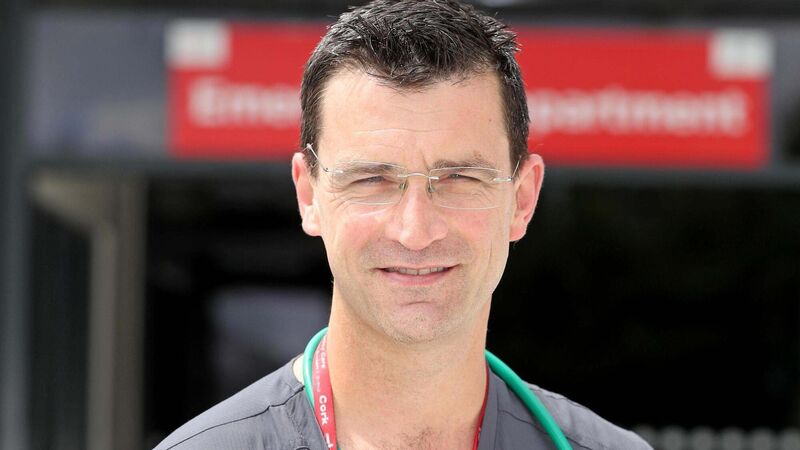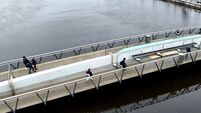Study finds cardiac arrest survival rate higher in urban areas

Professor Conor Deasy, professor of emergency medicine in both UCC and CUH, was one of the authors of the report. Picture: Jim Coughlan.
A NEW study which looks at cardiac arrests in Ireland has revealed that survival was 65% higher in urban areas than in rural areas.
A cardiac arrest is when the heart suddenly stops beating and malfunctions. The study, co-authored by a professor of emergency medicine in both UCC and CUH into resuscitation for out-of-hospital cardiac arrest in Ireland, looked at more than 18,000 cardiac arrests occurring between 2012 and 2020, and found that overall, survival was 5.8%, with the highest survival found in patients who had bystander defibrillation at 30%.
However, only 6.8% of all patients were in this category, and just a 1% survival rate was found in patients who did not have defibrillation attempted at any stage, which was the situation for over two thirds of patients at 68.3%.
The median age and call response interval were lower in survivors, and urban location was associated with increased odds of survival when compared to rural location.
Survival rate
The survival rate of those who had an out-of-hospital cardiac arrest in an urban setting was 65% higher than those who had a cardiac arrest in a rural setting, with a 4% survival rate in rural areas and a 6.6% survival rate in urban areas.
“Over one third of all patients had OHCA [out-of-hospital cardiac arrest] in a rural setting and thus the survival differential is a significant issue at population level,” the report noted.
Professor Conor Deasy was one of the authors of the report.
“We’ve known that there’s been an urban/rural difference for quite some time, it was on the strength of that knowledge that Community First Responder (CFR) programmes in Ireland were started,” he told The Echo.
“Basically, they help educate people in areas who organise themselves into a CFR team how to use an AED defibrillator and how to perform chest compressions.
“The programmes are supported by the ambulance services, because we recognise that even with the best will in the world, we could never have enough ambulances and ambulance staff to reach every corner of the country within eight minutes — that’s the timeline that they should be there.
“It was recognised that the rural response time was longer than eight minutes, and even the urban response time was longer, so a big effort [is] made to support CFRs.”
He explained: “What that means is that if you’re in, say, Ballinspittle, and you drop, somebody rings 999 and says: ‘My loved one has dropped, they are not breathing and not responding’, the person on the phone in Tallaght gives instructions to perform chest compressions and activates the highest level of blue-light response. But, in parallel to that, an automated text message is sent to a Community First Responder group geofenced in that area.”
Media coverage
Prof Deasy added that media coverage is very valuable for encouraging others to get involved in a CFR group.
“It’s not for everyone — you have to be fit enough to administer chest compressions, and brave enough to go into a place where someone is potentially dead,” he said.
“Ireland lives in a very dispersed way, 40% of the population lives in rural conurbations, so it makes delivery of emergency services very difficult.”
He added that public access to defibrillators was important, but that often cardiac arrest happens in homes, adding: “It will often be your loved one who collapses and that you need to perform CPR on.”










 App?
App?


